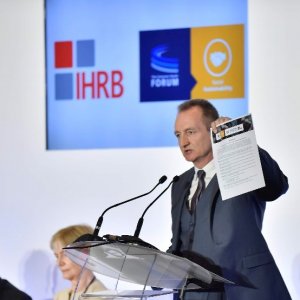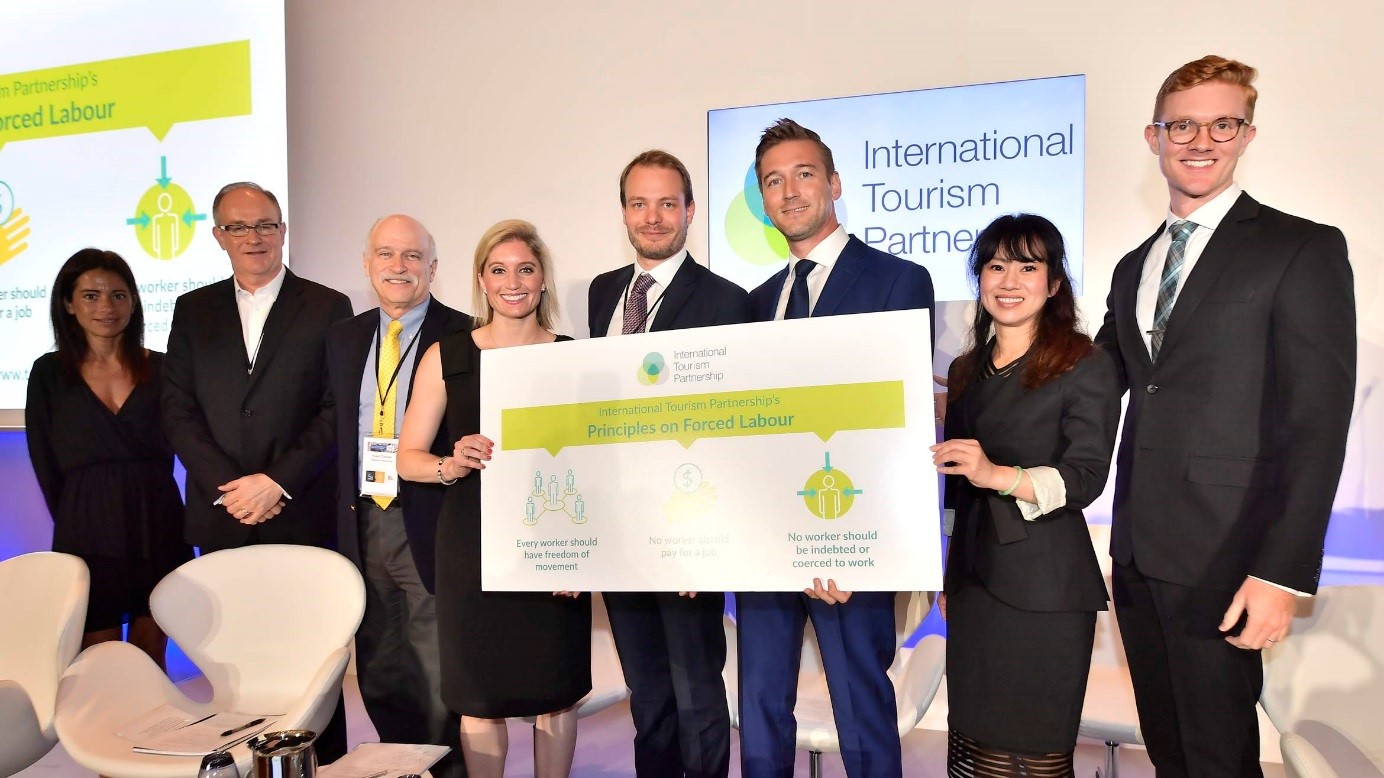The Consumer Goods Forum (CGF) and the Institute for Human Rights and Business, alongside key partners, teamed up to host the 2018 Global Forum on Responsible Recruitment & Employment on 11th and 12th June in Singapore.
This important event provided an opportunity to explore successes and barriers to eliminating worker-paid fees, that often lead to debt bondage and forced labour. Over 200 delegates from global brands, suppliers, recruitment agencies, civil society, academics and governmental representatives attended to explore means of accelerating collective action towards a time when no worker pays for a job and the “Employer Pays” model of ethical recruitment becomes the normal way to do business. Delegates heard from those working with migrant workers, practitioners and CEOs about what is needed for faster progress. They also heard from industry experts as they discussed the CGF’s Priority Industry Principles and how to implement change, as well as markers for progress from the Leadership Group for Responsible Recruitment.
Dealing with Forced Labour Challenges on the Ground
The CGF was privileged to have William Lacy Swing, Director General, International Organization for Migration (IOM), open the event. He spoke of the appalling conditions that he witnessed while visiting migrant detention centres in Libya and the challenges that the IOM deal with on the ground, faced with criminal networks of smugglers and human traffickers. He then appealed to delegates to rise to the challenge to protect the rights of people on the move. “Whatever your business, there is a lot to be done. No industry or economic sector is immune to these abuses”, he said. Swing concluded by offering suggestions on the way forwards: examine more thoroughly your individual supply chain, put pressure on governments to pass anti-slavery legislation, and focus on the sectors most vulnerable to forced labour and trafficking.

William Lacy Swing gives keynote address on the first day of the Global Forum
Business Call to Action: Standing Collectively Against Forced Labour
On the second day of the event, the CGF, aligned with ILO and IOM issued a Call to Action, asking businesses around the world to play their part in the fight to end all forms of forced labour. The call to action is a strong affirmation of CGF members’ commitment to strive to eradicate forced labour from global supply chains and continue not to tolerate forced labour within own operations.

Grant Reid issues call to action at the Global Forum on Responsible Recruitment and Employment
Ian Cook, CEO, Colgate Palmolive introduced the afternoon panel, entitled “Working Together to Combat Forced Labour”, and said that he was impressed to see that the Forum had brought together such a diverse group united in the commitment to end forced labour, “as achieving that goal will entail a coalition of industry, government and civil society”.
Grant Reid, CEO, Mars Incorporated, then took the stage and announced the call to action, asking all delegates to act and make a difference. He shared his company’s concrete actions which resulted in positive shifts on hours, wages and protection for women. Collectively we have made a good start, he said, but it is only a start. “We must now accelerate momentum together and attack this issue with urgency. It is a moral, societal and business imperative.”
Launch of ILO Global Business Network on Forced Labour

Speakers emphasised the importance of this Network in facilitating collaboration and aligning the work of the many forced labour initiatives globally to achieve much needed coherence and drive the best possible outcomes. The CGF is looking forward to continuing this important work alongside the ILO and are pleased to be part of their Advisory Board.
International Tourism Partnership Launches Hotel Industry Principles
During the Tuesday afternoon, the International Tourism Partnership and its members took the stage and announced the launch of the ITP Principles, aligned with CGF’s Priority Industry Principles. The simple principles, explained Nicolas Perin, Programme Manager at the ITP, will allow members to prioritise action to address the primary drivers of forced labour within the hotel industry. Aligning with the CGF’s Priority Industry Principles have allowed for a robust approach that avoids duplicating efforts. Representatives from Marriott International, Hilton, IHG, Hyatt and Radisson Hotel Group then took the stage and expressed support for the ITP Principles, and each spoke about their work on ethical recruitment in alignment with the principles. The speakers agreed that although they were on a collective journey of continuous improvement, the ITP Principles represented a foundational step to drive respect for human rights in their industry.

ITP and members have officially launched ITP Principles on Forced Labour
During two days, the CGF and IHRB had the privilege of hosting photographer Lisa Kristine’s acclaimed exhibition, “ENSLAVED”, a visual story of modern day slavery. Delegates could view the powerful photography in the networking space at the event’s venue, Marina Bay Sands in Singapore. The exhibition remained in place for the rest of the week during the CGF’s flagship event, the Global Summit.
The full executive summary will be published in the coming weeks, as well as video footage of the event for those who missed it.
Take a look at the social media coverage from CGF and delegates by searching the official event hashtag #GFRRE18.

